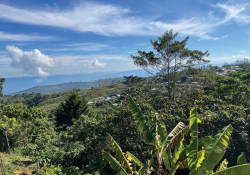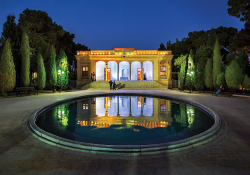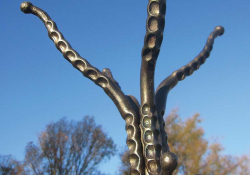Translating Eli Eliahu’s Difficult Efficiency

“I like simple writing, straightforward and uncomplicated, and I try to write like that,” Eli Eliahu said, upon receiving Israel’s Matanel Prize in 2013. His work is characterized by this lack of pretension, and it lingers as much on the unsaid as it does on what is spoken aloud. In his poems, not is as present as what is; part of the challenge of translating his work is to catch the rhythm of the no, as it recurs in his poems, and convey it as seamlessly and easily as he is able to do in Modern Hebrew.
Eliahu grew up in Ramat Gan, a suburb of Tel Aviv, but his roots are further east than Israel’s central coast, the narrow strip of land where he was born, went to university, and still resides. Eliahu is from an Iraqi Jewish family—his father was born in Baghdad—and the Mizrahi experience in Israel informs many of his poems. “Mizrahi” is a broad but important term in Israeli culture; literally translated as “Eastern,” it refers to Jews who immigrated to Israel mostly from Arab lands (and many Mizrahi families previously spoke Arabic as their primary language) but also includes Jews from Iran, India, Turkey, Central Asia, and other places. Israeli culture has traditionally been dominated by Ashkenazi Jews, and a sense of second-class status became fundamental to Mizrahi identity. Eliahu told the Israeli newspaper Haaretz, “When you are a member of an Mizrahi family and you look at the peak of Hebrew poetry and see only people from Europe—who belong to another culture, who speak a little differently, who came from a different home from you—you feel a bit like you do at the cinema, seeing only blond people with blue eyes.”
As a second-generation Mizrahi writer, Eliahu writes from a space of both success and loss: his own success in becoming Israeli; his parents’ loss of access to their culture, the spaces of their childhood, the sounds of their world; and the distance between his experience and theirs. There is a confidence in the straightforwardness of his language, a belief that he does not need to say more than necessary. This efficiency can be difficult to translate. Modern Hebrew is already a compressed language, combining into single words what might take three or four words to say in English. Additionally, Hebrew is based on a series of shoreshim (roots), so that multiple words branch off from the same core, maintaining a relationship to each other even as they shift into different meanings. Translating Eliahu requires honoring the efficiency of his language, and maintaining the directness of his speech, while allowing these resonances to be heard. He writes as if you’ve encountered him at one of Tel Aviv’s many cafés, speaking to you over a cup of strong coffee, before you both have to get on with your days, go home to your families, take stock of your pleasures and your failures.
Like many Israeli writers, Eliahu does not exist only in the world of poetry. He works as a journalist and editor, but he recognizes a difference between the language of the everyday and that of poetry. “When you read an article or news brief, once you have read the words, they fall away and die, like carcasses on the roadside,” he has said. “But in poetry, the fourth line stands connected to the first, and all the words likewise stand connected to each other.” This sense of the beauty and solidity of poetry, which Eliahu has inherited from influences as disparate as the Hebrew Bible, Walt Whitman, and Wisława Szymborska, now comes to us distilled into the language of one of Israel’s most plainspoken poets.
Editorial note: For more, read two of Kevin’s translated Eliahu poems.








